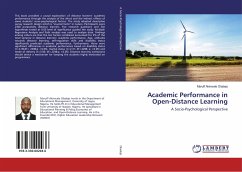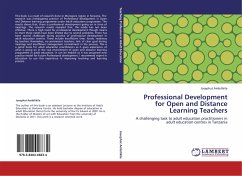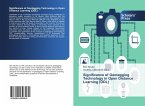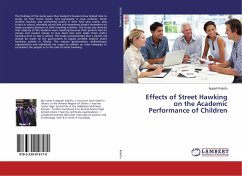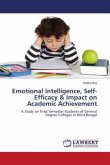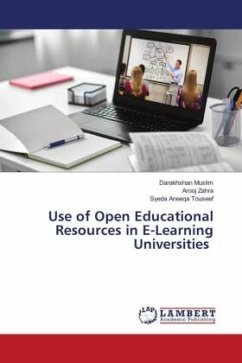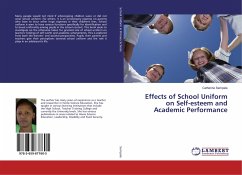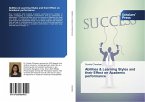This book provided a causal explanation of distance learners' academic performance through the analysis of the direct and the indirect effects of some students' socio-psychological factors. The study adopted descriptive survey research design which is "ex-post facto" in nature. Participants were 2300 purposively distance learners. Five research questions and five hypotheses tested at 0.05 level of significance guided the study. Multiple Regression Analysis and Path analysis was used to analyse data. Findings among others are that the ten factors combined accounted for 3% of the total variance in distance learners' academic performance. Age, attitudes towards distance learning, self-regulation skills and disability status significantly predicted academic performance. Furthermore, there were significant differences in academic performance based on disability status (t=2.39;df= 2298;p 0.05), marital status (t=2.31; df=2298; p 0.05) and mode of delivery (t=3.06; df=2298;p 0.05). Distance learning institutions should device a mechanism for keeping the students highly motivated on programmes.
Bitte wählen Sie Ihr Anliegen aus.
Rechnungen
Retourenschein anfordern
Bestellstatus
Storno

